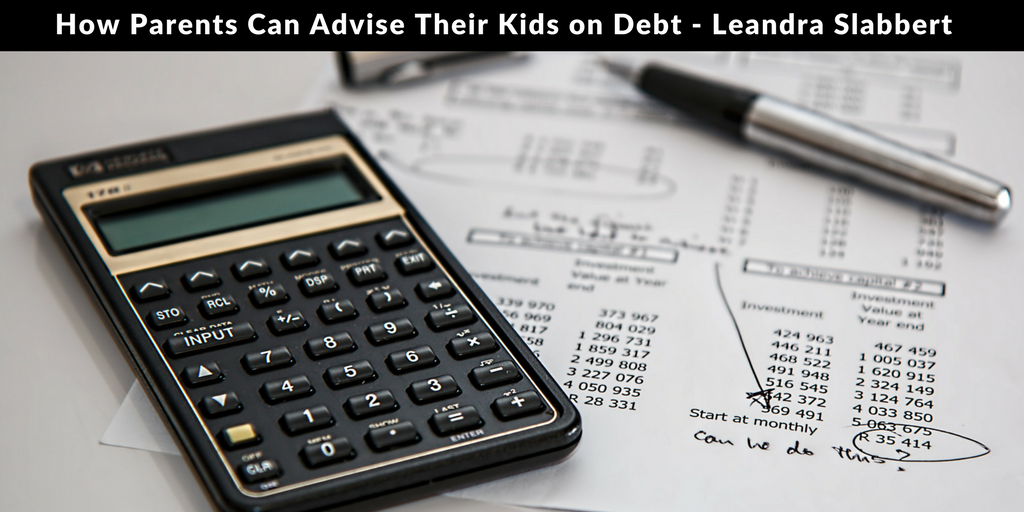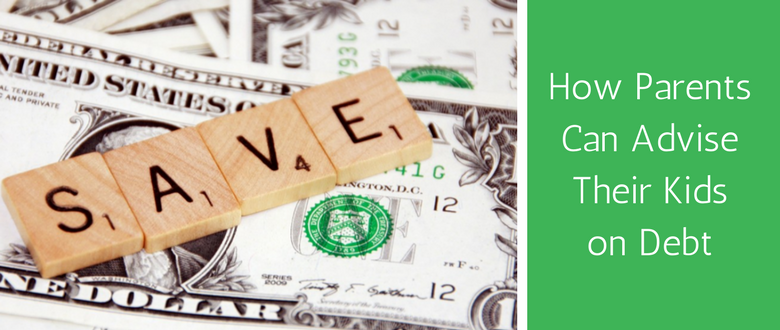What to Teach Children About Money
Ooh… I was really hoping my children would pick up everything they need to know about money management from their Dad rather than from me. I am notoriously bad with money. Oops. Did I say that out loud? Let’s rephrase that: I was terrible with money, I am now reformed.
When I met my husband, I was in huge debt and he rescued me from it – not by paying it all off for me, well, actually he did, kinda… but I had to close down and cut up all my credit cards and pay him back. It was a huge lesson for me. (You can read more about my personal story in my SA Mom Blogs Interview).
Or skip the drama and head straight to the good bits – excellent advice from Leandra Slabbert.
How Parents Can Advise Their Kids on Debt
 Guest Post – Leandra Slabbert
Guest Post – Leandra Slabbert
Debt: the dreaded word we all want to avoid, at all costs.
Unfortunately, times are tough; the costs of living are rising tremendously each year, while wages and salaries seem to increase at snail’s pace.
Without getting into the nitty-gritty of finances, and throwing around big words like inflation – we can all gather for ourselves that the world is in a tight spot, financially.
More and more people are falling into the debt trap, and the scariest part is that this pool includes many young people, too – people who have not yet ‘started their lives’, so to speak. We’re talking about school leavers, varsity students and young adults that are still figuring out their path in life. It’s a sad state of affairs, and if we look at the numbers, it seems like debt will start becoming ‘the norm’.
A survey carried out in the UK, which analysed the financial position of 4000 18 to 30 year olds, established that at least a quarter of the total were always in debt and almost half have to borrow at some point in the month to make ends meet.
The survey identified women as being the worst affected by debt, coming in at a whopping 25% of the affected lot. (Hey, ladies, you may want to cut down on those shopping sprees).
But seriously, Generation Y is in a financial crisis and a debt epidemic is fast approaching. Whether we put it down to shopping sprees and self indulgence, or whether it’s debt from student loans and basic living – the fact still remains – they’re in a sticky situation.
The best thing we can do as parents, guardians or just simply, elders, is to educate the youth on debt and assist them along their financial journey. We don’t mean necessarily throwing cash at whomever is battling to keep their head above water, but more so offering advice and guidance to the youth.
Most of us have lived long enough to know what turmoil financial struggles, and ultimately debt, brings and have witnessed its destruction. Perhaps some of us have first hand experience of coping with debt, which gives us the platform to teach others what not to do. (Oh yes! I’ve got that T-Shirt).
Ending the vicious cycle starts with those who are able to educate and inform those around them and especially those who are young and inexperienced.
There are many effective ways to ensure your children avoid the downward spiral of the D word and it starts with guidance and good advice. Read our list of tips, which will help your children financially, without you having to literally help them, financially.
Inform them of Budgeting Techniques
Teaching your kids how to budget effectively and efficiently, will be half the work done. It’s important to detail how a budget is drawn up and how income and expenses are divided.
This will help them to visualise their position and will help them to identify how much they spend on certain things, on average and whether or not their income is able to carry this load.
If their expenses are much more than their income, show them how to adjust their spending habits and perhaps find other means of earning extra money, to ensure they avoid debt and overspending.
A budget should be drawn up each month, and their budgets from previous months should be used as a form of reference, as to where they could improve, in future.
Direct them Away from Student Loans
Student loans sound all good and well, when you think you have no other options.
What we can say is student loans can be extremely demanding, financially. The interest rates on student loans are always incredibly high (much too high for a young adult), and this is why the payments never seem to end.
As a young adult, loans should be avoided at all costs – unless you’re able to pay them back in a year at most. We know, however, that university graduates are finding it extremely difficult to find work once they have completed their studies, which means their student loans will be hanging over their heads for many years to come.
Direct your children to alternative ways of paying for their tertiary education. Scholarships, bursaries or other ways of financial assistance would be the smarter route to take.

As an adult, you have life experience. You have seen the dark side of debt, whether you have first-hand experience (like me), or have seen it hurt those around you.
This is the ideal time to inform your children of what you’ve dealt with, or seen over the years. It’s not about scaring your children it’s moreso about making them aware of the implications of living above one’s means.
The youth need to understand the importance of avoiding the debt, so that they don’t have to see one-day seek help from debt consolidators, or worse – other family members.
Highlight the Disadvantages of Buying on Credit
The best advice you could possibly give, is to use the quote ‘if one cannot afford to purchase with cash, they shouldn’t purchase it at all’.
Buying on credit is easy – too easy.
We fail to see how much we’re actually spending when we buy on credit. Cash on the other hand, forces us to be aware of how much money is leaving our pockets, that’s why this method of purchasing does us all the world of good.
As a young person especially, credit should be a no-go zone. At this point in their lives they’re not earning enough money to successfully pay accounts in time, after racking up large bills. Most of the youth are not yet stable in a career and are more than likely job-hopping.
Dabbling in credit purchases is the most dangerous route to take when this is the case. When you’re teaching your child how to budget, ensure that they are aware of how much they are able to spend in certain areas, during the month.
Discourage Purchasing on Impulse
Buying on impulse is the quickest way to stray from your budget, and inevitably, overspend.
It’s sometimes difficult to walk past an item you love, only to leave it in it’s spot and walk away. However, this is how willpower is achieved, and willpower plays a huge role in ensuring you avoid bad financial decisions.
Teaching your child to not buy on impulse, will not only teach them to stick to their budget, but will help them to develop a strong character.
Encourage them to Make Money from Their Hobbies
There is money to be made from hobbies, believe it or not!
If your child has some special talents, or has a hobby that can make them extra money – make them aware of this. Sometimes they are unaware of the need that their hobby would satisfy, or the problem their hobby could solve. One ‘hobby’ that could make them some extra cash, for sure, is teaching their elders how to navigate the latest tech gadgets!
About the Author:
Leandra Slabbert is a South African who enjoys travelling and writing. She has recently started copywriting and hopes to expand and explore her knowledge of a diverse range of topics. See more of her work here: Medium
Moms, I’d love to hear your personal money management stories. Do you have credit cards? Are they maxed like mine once were? The Silly Season is fast approaching… will you be spending cash or clocking up credit card debt?


